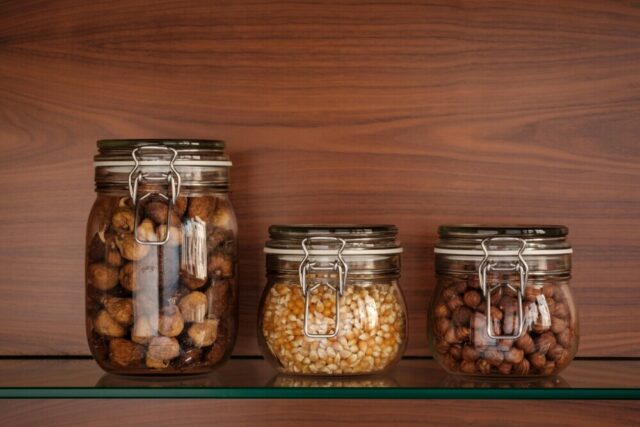 Image credit: Nacho Fernandez
Image credit: Nacho Fernandez
Hey there! You know, I’ve been thinking a lot lately about how much waste we all produce—and honestly, it’s a bit overwhelming. I mean, did you know that in 2022, Canadians produced over 26 million tonnes of waste? That’s a lot, right? And much of it ends up in landfills, which isn’t great for our beautiful country or the planet.
 Image credit: Public domain pictures – pixabay
Image credit: Public domain pictures – pixabay
But here’s the thing: we don’t have to feel helpless about it. In fact, we have more power than we might think to turn things around. I wanted to share some thoughts with you on how we can all make a difference, starting with some simple changes in our day-to-day lives.
Why Waste Reduction Matters (And Why We Should Care)
 Image credit: Alteregointeligenicia, Pixabay
Image credit: Alteregointeligenicia, Pixabay
So, why does it matter? Well, I don’t know about you, but I’m really proud of our incredible landscapes here in Canada—from the Rockies to our vast forests. Protecting these places isn’t just something we should do; it’s something we can do, and waste reduction is a big part of that! Less waste means less strain on our landfills, fewer greenhouse gases, and more natural resources saved for future generations. It’s a win-win.
Easy Ways to Reduce Waste at the Source
 Image credit: Markus Spiske
Image credit: Markus Spiske
Let’s start with the basics—reducing waste at the source. It’s all about making smarter choices before waste even becomes an issue isn’t it?
- Reusable Over Single-Use:
Imagine if we all swapped out our single-use items for reusables. It’s such a small change, but it makes a huge difference. I’ve started carrying a reusable water bottle and coffee cup with me everywhere. Some places even give you a discount for bringing your own cup—how cool is that? - Bulk Buying for the Win:
Have you tried shopping in bulk? I’ve found that it’s great for cutting down on packaging, and in some cases you save money – who doesn’t want to save money right? Plus, stores like Bulk Barn let you bring your own containers, so you can stock up on essentials without all that plastic waste. - Mindful Consumption:
Here’s a question I’ve started asking myself before buying something new: “Do I really need this?” It’s amazing how much stuff we accumulate that we don’t actually need. By being a little more mindful, we can cut down on waste and save some money too. - Separate food waste:
If you haven’t already, I encourage you to have a separte little bin for your food waste. This reduces the amount of waste that ends up in landfill. - Going Digital:
I used to be one of those people who printed everything out—bills, tickets, you name it. But I’ve switched to digital – for the most part (except in cases where I have to hand in letters), and not only has it reduced my paper waste, but it’s also made my life so much more organized. Seriously, if you haven’t gone paperless yet, give it a try – you can start slowly!
Reusing: The Art of Giving Things a Second Life
 Image credit: tonnyaa83, pixabay
Image credit: tonnyaa83, pixabay
One of the things I love most about reusing is how creative you can get with it. Instead of tossing things out, I’ve found some pretty awesome ways to give them a second life.
- Donate or Sell Unwanted Items:
Before you toss something in the trash, think about donating it or selling it online. I’ve had a lot of luck with this—things I no longer need have found new homes, and I’ve even made a bit of extra cash in the process! - Upcycling:
Have you heard of upcycling? It’s where you take something old and turn it into something new and useful. I’ve seen people do amazing things with upcycling—like turning old furniture into stunning pieces or repurposing jars into cute storage containers. It’s like a DIY project with a purpose. - Repair, Don’t Replace:
A little while ago, I had a favorite sweater that got a tear in it. Instead of tossing it, I mended it, and now it’s as good as new. There are even repair cafes popping up across Canada where you can learn to fix things instead of replacing them. It’s a great way to save money and reduce waste. - Reusable Containers and Wraps:
Reusable containers are my go to for leftovers. I’ve heard great things about beeswax wraps but I haven’t tried them yet but these alternatives are better than plastic wrap. - Repurpose Household Items:
I’ve had fun finding new uses for things around the house. Old T-shirts make great cleaning rags, and glass jars are perfect for storing pantry items. It’s all about being creative and thinking outside the box.
Recycling Right in Canada
 Image credit: John Cameron
Image credit: John Cameron
Recycling is such an important part of waste management, but it’s not always as simple as tossing things in the bin. I’ve learned that proper recycling can make a huge difference, and it’s worth taking the time to get it right.
- Know What Can Be Recycled:
One of the biggest things I’ve learned is that recycling rules can vary depending on where you live. It’s worth checking your local guidelines to make sure you’re recycling properly. - Clean Your Recyclables:
Did you know that you can’t toss dirty recyclables in your recycling bin? It is important to clean your recyclables. Apparently, dirty containers can mess up entire batches of recyclables, which means they might end up in the landfill anyway. A quick rinse is all it takes to make sure they’re good to go. - Proper Disposal of Hazardous Materials:
Batteries, electronics, and paint—these things need special disposal methods. Many places have drop-off locations for hazardous waste. I’ve started keeping a box for these items and taking them to the right place when it’s full. There are battery pickup days in my neighbourhood, you might want to do a little research to see if you have something similar in your area. - Extended Producer Responsibility (EPR) Programs:
Have you heard about EPR programs? They’re where companies are responsible for the disposal of their products, especially things like electronics and paint. By participating in these programs, we can make sure these items are recycled properly. - Staying Informed:
Recycling rules can change, so it’s important to stay in the loop. I’ve found that signing up for updates from my local waste management service helps me keep track of what’s going on.
Canadian Success Stories: Turning Waste into Resources
There are some really inspiring things happening across Canada when it comes to waste reduction. Here are a few stories that really stood out to me:
- Terracycle and Loop:
Terracycle is doing amazing work with their Loop program, which is all about waste-free shopping. They’ve partnered with big brands to create reusable packaging that you return after use. It’s a glimpse into what shopping could look like in the future, and it’s so cool to see it happening here in Canada. - The Plastic Bank:
The Plastic Bank, started by a Canadian, turns plastic waste into currency, helping to reduce ocean plastic and poverty at the same time. It’s such a smart idea, and it’s making a real difference. - Zero-Waste Groceries:
Have you checked out any zero-waste grocery stores? Places like Bulk Barn are leading the way by letting customers bring their own containers. It’s such a simple idea, but it’s making a big impact on reducing packaging waste. - Repair Cafes Across Canada:
I mentioned repair cafes earlier, and they’re really something special. They’re popping up in cities across Canada, and they’re all about fixing things instead of throwing them away. It’s great to see so many people getting involved. - The Great Canadian Shoreline Cleanup:
The Great Canadian Shoreline Cleanup is another amazing initiative. Thousands of volunteers come together every year to clean up our shorelines, and they’ve removed over 2 million kilograms of trash so far. It just goes to show what we can do when we work together.
Nationwide Resources for Waste Management in Canada
If you’re looking to get more involved in waste reduction, there are so many resources out there:
- Recycle My Electronics: A program that makes it easy to recycle your old electronics.
- Call2Recycle: A battery recycling program that’s available all across Canada.
- Circular Innovation Council: They offer tons of resources for reducing waste and recycling right.
- Composting Programs: Many cities offer curbside composting, which makes it easy to compost even if you don’t have a garden.
- Sustainable Shopping Options: Stores like Bulk Barn and Nada are great for reducing waste when you shop.
The Bottom Line
I hope my post on from trash to treasure ideas has given you some ideas on how you can reduce, reuse, and recycle more effectively. It might seem like small steps, but when we all make an effort, it adds up to something big. Let’s keep working together to protect our beautiful country and turn our trash into treasure. We’ve got this!

